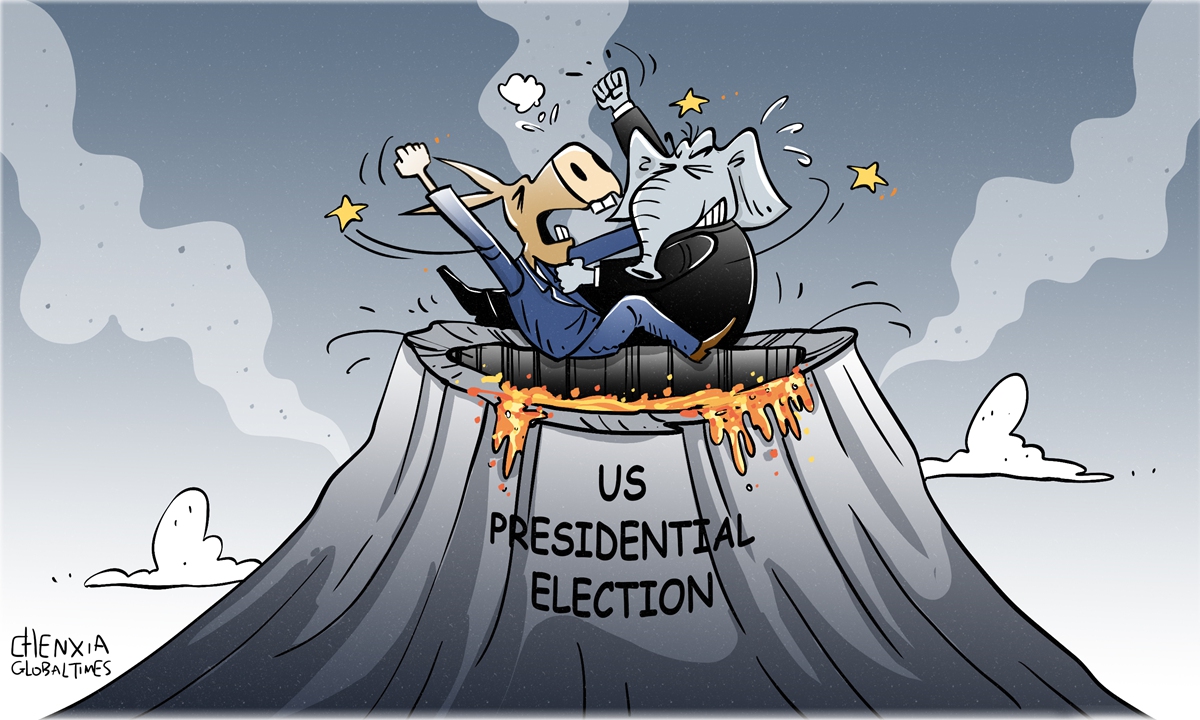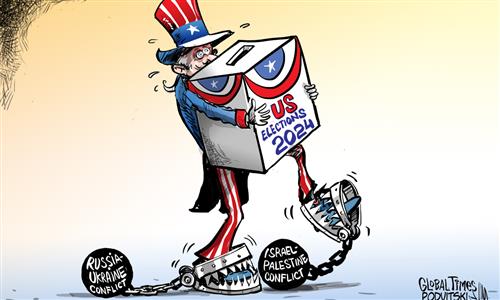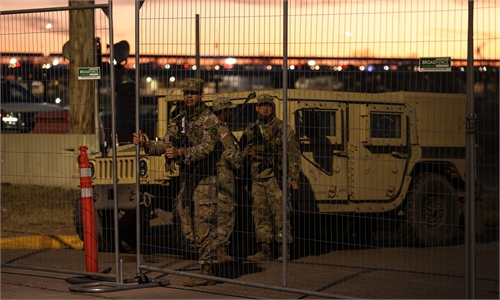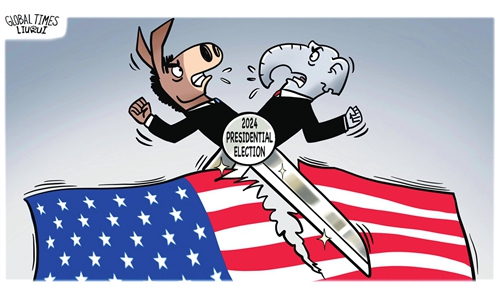Internal clashes of civilizations foment conflicts, prompt deep division of the US

Illustration: Chen Xia/GT
Editor's Note:In the election year, the world is witnessing a "tale of two Americas" scenario, with a growing number of controversies within the US escalating to risks of a new civil war. What caused the deep divisions in the country? Where are they headed? Global Times has invited scholars from both China and the US to explore the issue. This is the first article of the series.
The narratives of America's impending decline, internal strife and collapse have been circulating on the international stage for a long time. Today, these voices have become particularly robust.
In the election year, we are witnessing "two Americas": the "red" and "blue" US, each with its own social circles, media circles and policy spheres, holding divergent views on many issues. Some American scholars point out that these "two Americas" are essentially in a state of a "cold" civil war.
There are still no signs of US exiting the world stage. In 2023, the per capita GDP of the US reached over $80,000. This is disappointing news for those hoping to end the dominance of the US dollar.
However, the cyclical experiences of the rise and fall of great powers in world history repeatedly demonstrate that no country can maintain hegemony permanently - the US is no exception. The sustainability of hegemony is not necessarily linked to economic prosperity or decline. For example, the Great Depression, which started in 1929, did not lead to a civil war, nor did the 2008 subprime mortgage crisis.
If there is to be a new civil war, it won't arise from an economic recession or racial conflicts but from an internal cognitive clash in the US. In the past, people were accustomed to interpreting international relations using Samuel Huntington's theory. However, the clash of civilizations seems to be a prophetic explanation for internal contradictions within the US. Different immigrants in the US represent different civilizations from various continents, which converge in the US. They once jointly made America glorious, but they also embody different worldviews, values, lifestyles and cultural perspectives that cannot be easily integrated. This has led to the emergence of a "clash of civilizations" within the US.
Nowadays, the Democratic and Republican parties are already fiercely embroiled in border control issues. Texas, dispatched its National Guard and has constructed a border barrier to prevent illegal immigrants from entering, which is tantamount to adding fuel to the fire of partisan issues.
In January, Texas Governor Greg Abbott said he will continue to defend his state's border despite a Supreme Court order that the US Border Patrol can take down razor wire Texas set up along portions of the US border with Mexico. Some US reports said that this move is challenging not only federal authority but also the power of the Supreme Court and ultimately the supremacy of the Constitution itself.
The US Supreme Court has ruled that Texas can't block federal agents from the border, sparking another collective backlash from Republican states. This event can certainly be observed and interpreted against the backdrop of party politics and presidential elections. However, in a more profound sense, it reflects an internal cognitive confrontation and an irreconcilable self-conflict within the US.
Multiculturalism was once the driving force behind America's prosperity. However, it has lost its dynamic. Some original US cultures, which were once supported and nourished by external civilizations, are increasingly sinking into cognitive swamps. The dispute between the federal government and Texas, which reflects the rupture and colossal gap between old America and new America at the level of civilization, happens to be the primary impetus for internal consumption and civil war.
The primary driving force behind the US' decline and potential civil war is the internal civilizational conflict, which encompasses political correctness, worldviews, values, lifestyles and cultural perspectives. Today, the US is standing on the edge of this volcano. The danger to the US does not stem from China or any other external factors, but from within. The issue of illegal immigration reflects internal divisions and conflicts - precisely the spark that could ignite the volcano.
French historian Fernand Braudel divided history into three processes. From a long-term perspective, the decline of the US is inevitable, and this decline will be the longest and most profound. In terms of medium and shorter time scales, economics offers little valuable reference. It is precisely the internal clash of civilizations that provides insight into how the US may decline or even experience a civil war.
The author is an associate professor at the School of International Relations of Beijing International Studies University. opinion@globaltimes.com.cn



